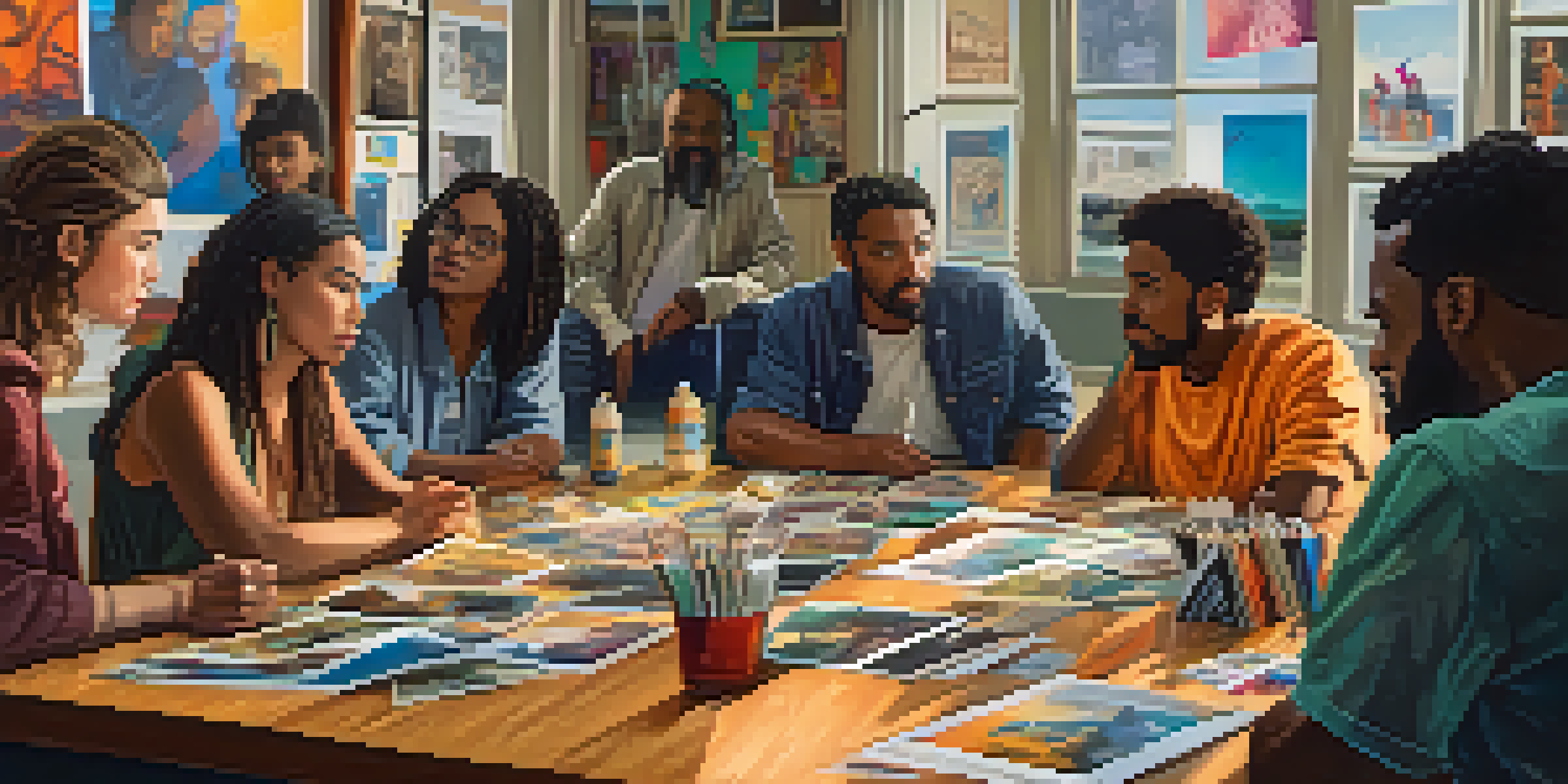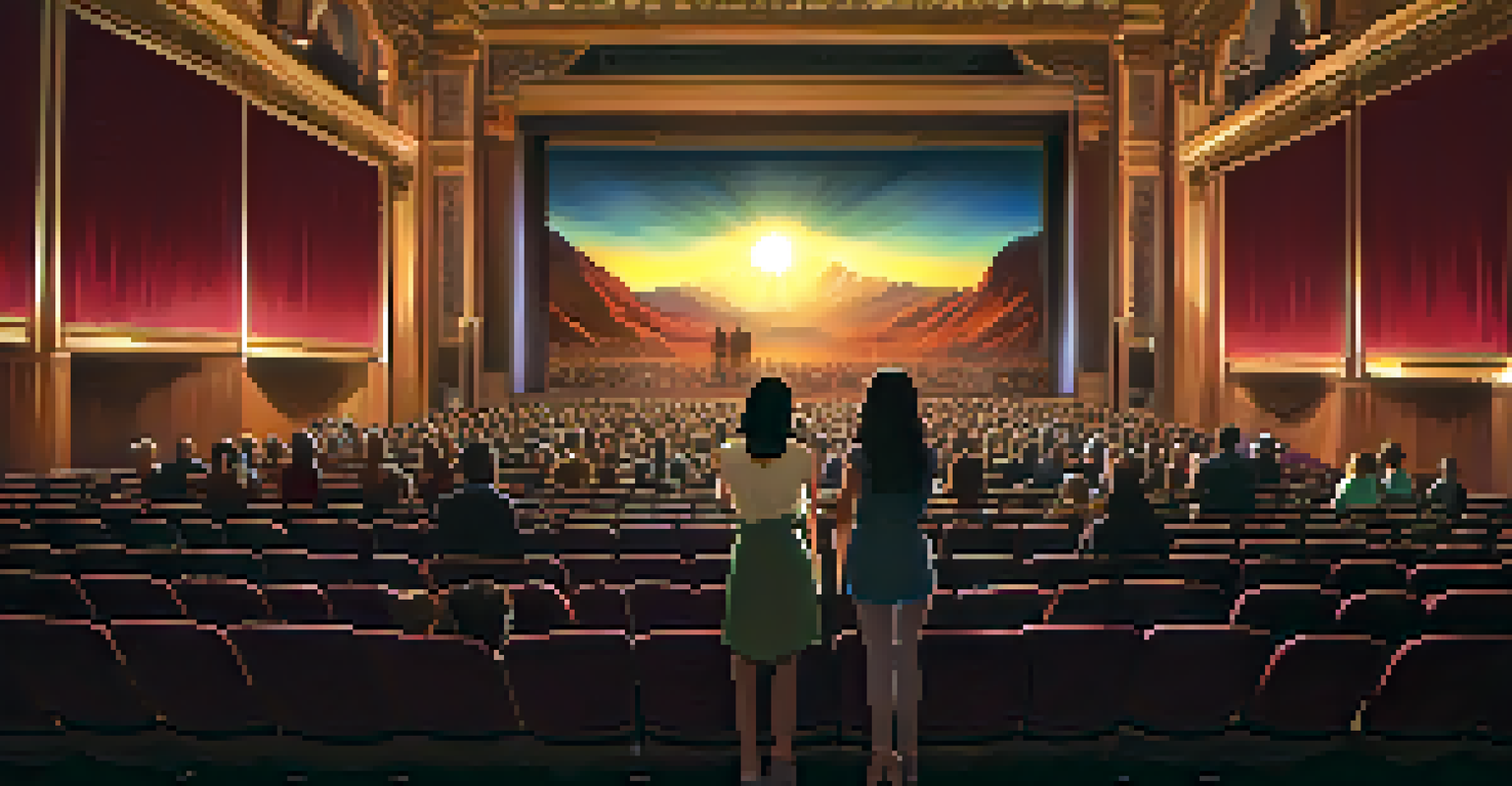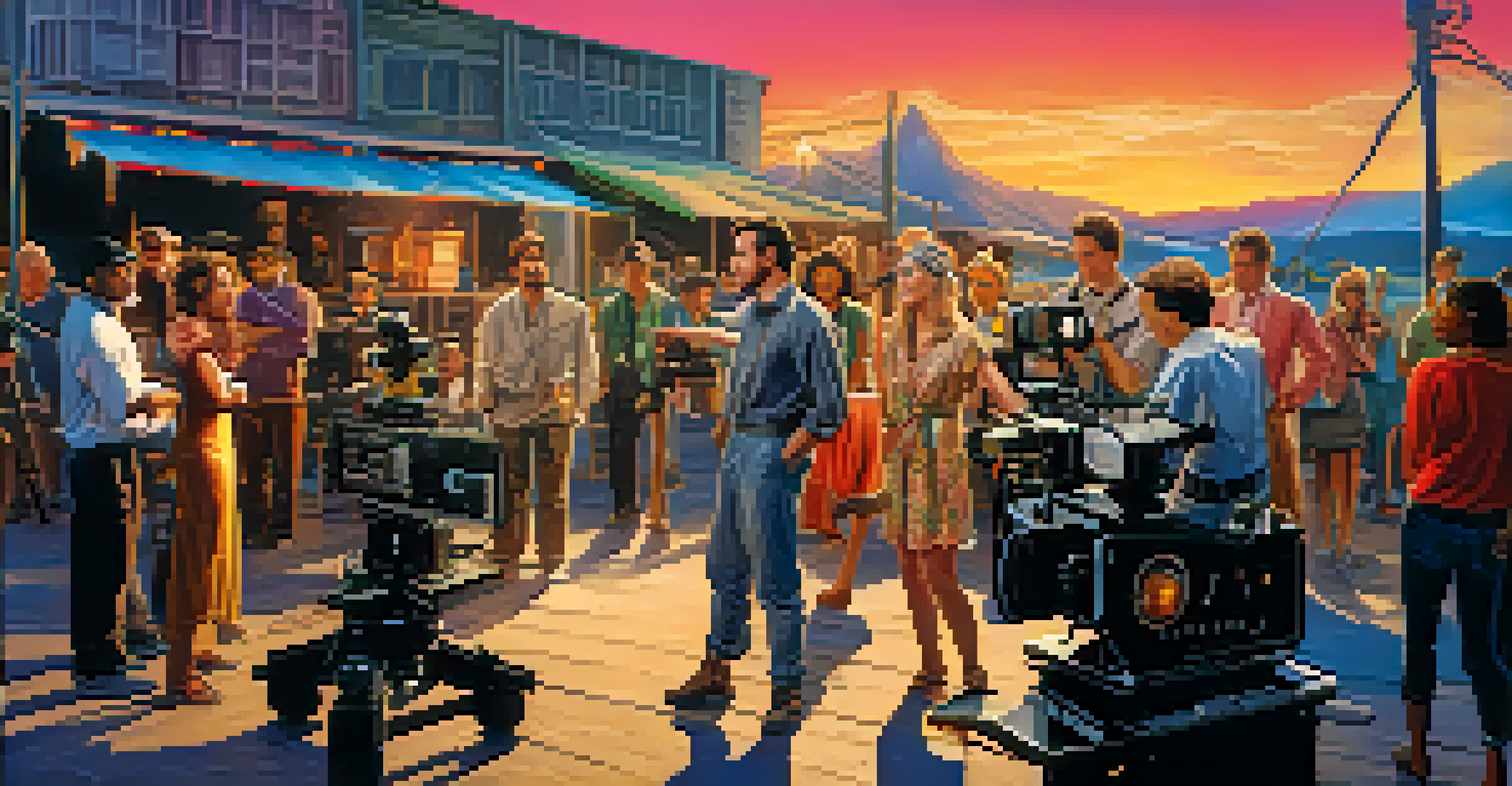The Role of Stereotypes in Hollywood's Cultural Representation

Understanding Stereotypes in Film and Media
Stereotypes are oversimplified and widely held beliefs about groups of people. In Hollywood, these can manifest through character types and storylines that often lack depth. For example, the 'dumb jock' stereotype reduces complex athletes to mere caricatures, stripping away their individuality.
The greatest weapon against stereotypes is the power of storytelling.
These portrayals can influence public perception, leading audiences to form biases based on what they see on screen. When a character's personality is defined solely by their ethnicity or gender, it perpetuates a narrow view of that group. This not only affects how individuals see themselves but also how society perceives them.
Ultimately, stereotypes in film can limit opportunities for actors and writers who wish to present more nuanced narratives. The challenge lies in moving beyond these simplistic depictions to create more authentic representations of diverse cultures.
Historical Context of Cultural Representation
Hollywood's history is rife with examples of cultural misrepresentation, often reflecting the societal attitudes of the time. From the portrayal of Native Americans as savages to the exoticization of Asian characters, films have played a significant role in shaping perceptions. These early depictions set a precedent that influenced generations of filmmakers and audiences alike.

The lack of diverse voices in early cinema meant that stories were primarily told from a Eurocentric perspective. This exclusion not only marginalized entire communities but also reinforced harmful stereotypes that persist today. As a result, many cultures were reduced to mere plot devices or comedic relief.
Stereotypes Shape Audience Views
Stereotypes in film can distort public perception and reinforce biases, particularly among impressionable audiences.
Understanding this historical context is crucial for recognizing the patterns that continue to affect modern filmmaking. It highlights the importance of inclusivity in storytelling and the need for diverse creators to share their authentic experiences.
Impact of Stereotypes on Audience Perception
The way characters are portrayed in films significantly influences audience attitudes and beliefs. When viewers repeatedly see certain stereotypes, they may internalize these images, leading to skewed perceptions of reality. For instance, if a film consistently depicts women as overly emotional or dependent, it can reinforce societal norms around gender roles.
If we don’t tell our own stories, someone else will tell them for us, and they will get it wrong.
Research has shown that exposure to stereotypes in media can impact viewers' attitudes towards real-life individuals from those groups. This is particularly concerning for impressionable audiences, such as children and teenagers, who are still forming their understanding of the world. The characters they see on screen can shape their expectations and interactions with others.
To combat this, filmmakers have a responsibility to portray characters in a more balanced and multifaceted manner. By showcasing diverse stories and characters, they can help challenge stereotypes and promote a broader understanding of different cultures.
Positive Representation and Its Importance
Positive representation in Hollywood can empower marginalized communities and foster greater understanding among audiences. When films feature well-rounded characters from diverse backgrounds, they challenge existing stereotypes and broaden viewers' perspectives. This kind of representation allows audiences to see the richness of different cultures and experiences.
For example, movies like 'Black Panther' and 'Crazy Rich Asians' have not only garnered box office success but also sparked conversations about representation in Hollywood. These films have provided a platform for underrepresented voices, showcasing stories that resonate with a wide audience. They prove that diversity is not just a trend but a vital aspect of storytelling.
Importance of Positive Representation
Positive representation in media empowers marginalized communities and enriches audience understanding of diverse cultures.
Moreover, positive representation can inspire future generations of filmmakers and creatives to tell their own stories. When young people see themselves reflected in media, it can ignite their passion and confidence to pursue careers in the industry.
The Role of Filmmakers in Shaping Cultural Narratives
Filmmakers play a crucial role in shaping how cultures are represented on screen. Their decisions regarding casting, storytelling, and character development directly impact audience perceptions. By choosing to depict characters authentically, filmmakers can help dismantle the harmful stereotypes that have long plagued Hollywood.
It's important for creators to engage with diverse perspectives when developing their stories. Collaborating with individuals from various backgrounds can lead to richer narratives that resonate with a broader audience. This not only enhances the storytelling but also fosters a culture of inclusivity within the industry.
Furthermore, filmmakers have the power to use their platforms to challenge societal norms and push for change. By highlighting stories that reflect the complexities of real life, they can help shift the narrative away from stereotypes and towards a more realistic portrayal of cultures.
Audience Responsibility in Media Consumption
While filmmakers hold significant influence, audiences also play a critical role in challenging stereotypes. By actively seeking out diverse films and supporting creators from underrepresented backgrounds, viewers can help shift industry standards. This encourages Hollywood to invest in authentic stories that reflect the breadth of human experience.
Moreover, audiences should be critical of the content they consume. Engaging in discussions about representation and sharing feedback can help raise awareness about the impact of stereotypes in media. When audiences voice their opinions, they send a message that diverse and authentic storytelling matters.
Filmmakers' Role in Cultural Narratives
Filmmakers have the power to dismantle harmful stereotypes by choosing to depict characters authentically and inclusively.
By taking responsibility for their media consumption, viewers can contribute to a cultural shift that values inclusivity and authenticity. This collective effort can lead to a more equitable representation of cultures in Hollywood.
Future Trends in Cultural Representation in Hollywood
As society continues to evolve, so too does the landscape of Hollywood. There is a growing awareness of the importance of authentic representation, and many filmmakers are responding by creating more inclusive narratives. This trend is encouraging as it suggests a shift towards a more equitable industry.
Additionally, the rise of streaming platforms has opened up new avenues for diverse storytelling. These platforms often prioritize unique voices and stories that challenge traditional stereotypes, allowing for a broader range of perspectives. This democratization of content creation is crucial for fostering change in Hollywood.

Looking ahead, it will be essential for both the industry and audiences to remain vigilant in advocating for authentic representation. By continuing to challenge stereotypes and support diverse creators, we can help shape a future where all cultures are represented with the depth and respect they deserve.